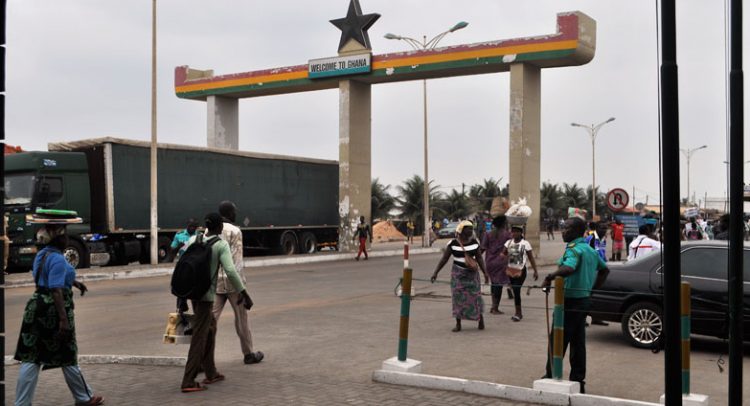One Day at Aflao Ghana (I)
Yes this is not fake. It is not a fabrication. It is a tale of and from reality; a story of the day I ‘met’ with the Almighty in a bus at Aflao, Ghana; the story that mirrors subtle aspects of cultural differences among West Africans particularly Nigerians and Ghanaians. I am fascinated by this […]

Yes this is not fake. It is not a fabrication. It is a tale of and from reality; a story of the day I ‘met’ with the Almighty in a bus at Aflao, Ghana; the story that mirrors subtle aspects of cultural differences among West Africans particularly Nigerians and Ghanaians. I am fascinated by this story not only because it speaks to our reality but more because it calls attention to something more profound than the characters in this narration were ever aware.
Location is Aflao- the border between Lome (Togo) and Accra (Ghana). Aflao, like other borders in the West African sub-region hardly goes to sleep. It is like Tudu in Accra or Eko in Lagos mainland. These places constantly image the tragedies, the contrarieties and the imponderables in human life and living in the region. The border equally images the ironies in our world, in our life as entities destined for extinction. No matter your time of arrival, you are sure of meeting your fellow humans at the point of departure; as you are departing, others are arriving. No matter the season in which fate and destiny bring you to Aflao border, you are sure of witnessing first-hand, the good, the bad and the ugly sides of West African life on display for all see. There you see official corruption on display with reckless and feckless abandon. There you encounter how the past has caught up with those who misused it; how the young are struggling with the old in order to make a living out of life; how women have become men and how men have become women.
Like other borders in the region, Aflao is the homestead of the homeless, of mad men and women, of criminals and criminality, of care and compassion, of joy and sadness. While governments in the region make a show of sustaining the colonial patrimony of militarized borders, West Africans have however devised ingenuous ways of living in a borderless world. Like water, humans always find their level; like the air we breathe, the human spirit is irresistible. Thus, it came to pass that I arrived the border that day after I had reached the decision not to travel by air on my trip to the land of Kwame Nkrumah. Travelling by air is reputed to be the safest. It is ironically equally the riskiest. Whereas the bus or car can easily pack in case of an emergency, it is not in the design of airplanes to entertain risks or emergencies. Once you are up there in the skies, you become acutely aware of how feckless human beings can be. There is no First Class or Third Class in time of emergency; status dissolves and meshes into insignificance once its time for the inimitable decree of the Almighty to come into fruition.
Brethren, on arrival to the border, I took another decision to ride in one of the executive buses that ply the Aflao – Accra route. Experience has shown that not all cars merit the fare passengers usually pay to ride in them. Eventually, I got lucky. It happened that I was the ‘angel’ the rest of the passengers were waiting for. As soon as I staged an appearance, the bus was ready to go. Or so it appeared. Yes. The bus was a fully-airconditioned one. It belonged to a popular private company in the city of Accra. Without much ado, I paid the bus fare, took the last seat and patiently began to await the departure of the bus from the station.
After close to twenty minutes, the driver of the bus then emerged. He walked briskly to where the vehicle was packed, opened the door to the driver’s seat, ignited the engine and turned on the air-conditioner. “Departure time”, we all thought. But lo and behold! as soon as the engine began to rev, the driver came down from the bus again and went back to the office of the transport company. His exit from the bus marked the beginning of a waiting period that was destined to last for nothing less than forty-five minutes. Yes. Without any explanation from any quarters as to the reason the bus was being delayed, nor for the ‘disappearance’ of its driver, we all sat patiently and in silence. During those ‘wonderful’ moments which turned to into minutes, I remembered bus stations in our cities in Nigeria.
I remembered that the scene playing itself out for my contemplation at Aflao that day could not happen in Lagos or Kano or Port Harcourt. There was no way a bus driver can summon the confidence and audacity to put his passengers in ‘limbo’ the kind of which I thought we were all subjected to by the Ghanaian driver that day.
